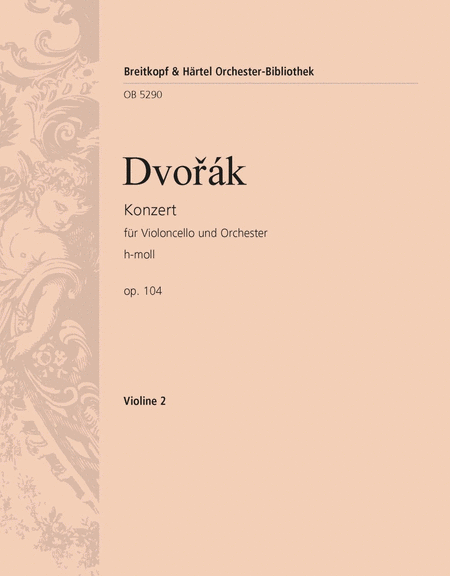Violoncello Concerto in B minor Op. 104
Urtext
Details
Description
SKU: BR.OB-5290-16
Urtext. Composed by Antonin Dvorak. Edited by Klaus Doge. Orchestra; stapled. Orchester-Bibliothek (Orchestral Library).Klaus Doge has critically re-examined all the surviving sources. His research has yielded a new, text-critical edition that meticulously evaluates the many, often contradictory readings that create discrepancies between the autograph and the first edit. Solo concerto; Romantic. Part. 12 pages. Duration 42'. Breitkopf and Haertel #OB 5290-16. Published by Breitkopf and Haertel (BR.OB-5290-16).
ISBN 9790004334737. 10 x 12.5 inches.
Choosing an edition of this celebrated violoncello concerto has always posed a dilemma: they were based either on the first edition, which was not given a final authorization by Dvorak, or solely on the autograph, which does not represent the final version in many instances. This was the case with the Dvorak Complete Edition of 1955, for example. Klaus Doge has critically re-examined all the surviving sources. His research has yielded a new, text-critical edition that meticulously evaluates the many, often contradictory readings that create discrepancies between the autograph and the first edition. In the conclusions he draws for performance practice, Doge generally gives priority to the first edition. However, he does not smooth out Dvorak's special notation, such as Dvorak's publisher Simrock did in his day. Doge's edition also shows that the musical text is not as authenticated as has been suggested by previous editions. Variants have occasionally been notated on a second staff at several passages, particularly in the solo part. The piano reduction, which was prepared by the composer himself, has been edited according to text-critical criteria for the first time as well. Doge was able to rely on a renowned performer for this part of his work: Heinrich Schiff, who arranged the solo part and provides valuable interpretative tips in his commentaries on performance practice.

 Share
Share